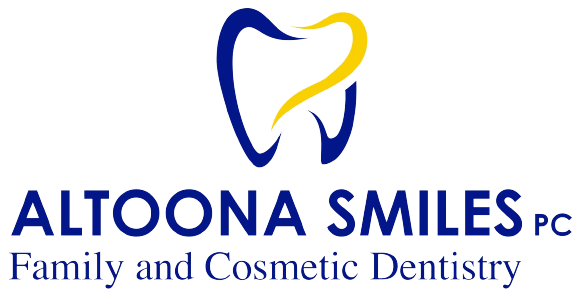Imagine enjoying a lifetime of radiant smiles, all with minimal intervention. The secret isn’t necessarily the latest dental technologies or treatments, but a foundational aspect of oral care: prevention. At Altoona Smiles, we prioritize preventive measures as they are the cornerstone for enduring dental health.

Why Prevention in Dental Care is Needed
- A Proactive Approach: By preventing dental issues, you’re taking a proactive stance on your health rather than reacting to problems after they arise.
- Cost-Efficient: Regular preventive care can save you from spending on more extensive and often more expensive treatments in the future.
- Holistic Health Benefits: Good oral health, maintained through preventive measures, benefits not just your mouth but can reflect positively on your overall health, reducing risks associated with conditions like heart disease and diabetes.
- Comfort and Confidence: Ensuring your teeth and gums are healthy enhances your comfort, eating experiences, speech, and boosts your self-confidence.
Tooth Decay Prevention
Tooth decay is a progressive disease resulting in the interaction of bacteria that naturally occur on the teeth and sugars in the everyday diet. Sugar causes a reaction in the bacteria, causing it to produce acids that break down the mineral in teeth, forming a cavity. Dentists remove the decay and fill the tooth using a variety of fillings, restoring the tooth to a healthy state. Nerve damage can result from severe decay and may require a crown (a crown is like a large filling that can cap a tooth, making it stronger or covering it). Avoiding unnecessary decay simply requires strict adherence to a dental hygiene regimen: brushing and flossing twice a day, regular dental check-ups, diet control and fluoride treatment. Practicing good hygiene avoids unhealthy teeth and costly treatment.
Sealants
The grooves and depressions that form the chewing surfaces of the back teeth are extremely difficult (if not impossible) to clean of bacteria and food. As the bacteria reacts with the food, acids form and break down the tooth enamel, causing cavities. Recent studies indicate that 88 percent of total cavities in American school children are caused this way.
Tooth sealants protect these susceptible areas by sealing the grooves and depressions, preventing bacteria and food particles from residing in these areas. Sealant material is a resin typically applied to the back teeth, molars and premolars and areas prone to cavities. It lasts for several years but needs to be checked during regular appointments.
Fluoride
Fluoride is a substance that helps teeth become stronger and resistant to decay. Regularly drinking water treated with fluoride and brushing and flossing regularly ensures significantly lower cavities. Dentists can evaluate the level of fluoride in a primary drinking water source and recommend fluoride supplements (usually in tablets or drops), if necessary.
Thumb Sucking
Sucking is a natural reflex that relaxes and comforts babies and toddlers. Children usually cease thumb sucking when the permanent front teeth are ready to erupt. Typically, children stop between the ages of 2 and 4 years. Thumb sucking that persists beyond the eruption of primary teeth can cause improper growth of the mouth and misalignment of the teeth. If you notice prolonged and/or vigorous thumb sucking behavior in your child, talk to your dentist.
Here are some ways to help your child outgrow thumb sucking:
- Don’t scold a child when they exhibit thumb sucking behavior; instead, praise them when they don’t suck his or her thumb.
- Focus on eliminating the cause of anxiety – thumb sucking is a comfort device that helps children cope with stress or discomfort.
- Praise them when they refrain from the habit during difficult periods.
- Place a bandage on the thumb or a sock on their hand at night.

Best Practices for Prevention in Dental Care
- Regular Check-ups: Schedule visits with your doctor at Altoona Smiles every six months. These visits often catch budding problems before they escalate.
- Daily Oral Hygiene: Brushing twice daily using fluoride toothpaste and flossing at least once a day remain the gold standard in preventive care.
- Balanced Diet: Limit sugary and acidic foods. Prioritize a balanced diet rich in vitamins and minerals essential for healthy teeth and gums.
- Protective Measures: If you play contact sports or grind your teeth, consider protective solutions like mouthguards.
- Stay Educated: Knowledge is power. Stay updated with dental care trends and recommendations.
Outlook
Preventive dental care is akin to building a protective shield around your oral health. While challenges may arise, a robust preventive regimen can significantly reduce the intensity and frequency of these issues. By embracing preventive strategies today, you’re investing in a future of confident smiles and overall well-being.
Frequently Asked Questions
Q: Why is preventive dental care important?
A: Preventive care is proactive, often averting potential dental issues, saving costs on treatments, promoting holistic health, and ensuring lifelong comfort and confidence.
Q: How often should I have a dental check-up for preventive care?
A: Ideally, you should visit your doctor at Altoona Smiles every six months for a preventive check-up and professional cleaning.
Q: Are regular dental cleanings part of preventive care?
A: Absolutely! Regular dental cleanings remove plaque and tartar build-up, helping to prevent cavities and gum disease.
Q: Does a balanced diet affect my dental health?
A: Yes, limiting sugary and acidic foods while maintaining a diet rich in essential vitamins and minerals can significantly support healthy teeth and gums.
Q: How can I enhance my preventive dental care regimen at home?
A: Brushing with fluoride toothpaste twice daily, flossing once a day, using a mouthwash, and staying educated about dental care trends are essential components of an effective home preventive regimen.
Let’s make prevention the heart of your dental care routine!
The journey to superior dental health is paved with preventive practices. If you’re seeking guidance or wish to schedule a preventive care session, the dedicated Altoona Team is here to guide you every step of the way. Reach out at 515-200-1299 or request an appointment online.







